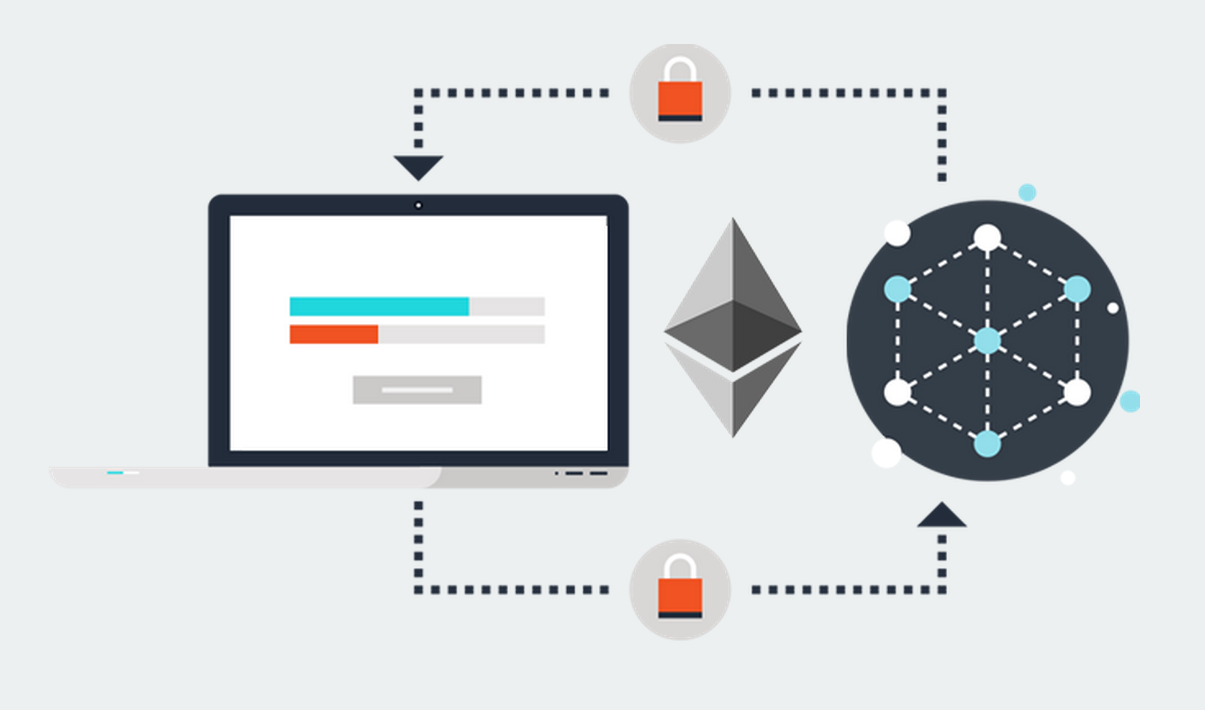Introduction
Welcome to the world of smart contracts in the field of accounting! With the rapid advancements in technology, the accounting industry is constantly evolving, and smart contracts are emerging as a powerful tool to streamline processes and enhance efficiency. In this article, we will delve into the concept of smart contracts and explore how they can benefit accounting professionals and their clients.
Smart contracts are self-executing contracts with the terms of the agreement directly written into code. They automate the execution of transactions, eliminating the need for intermediaries and reducing the potential for errors or disputes. These contracts are built on blockchain technology, which ensures transparency, immutability, and secure recordkeeping.
The potential benefits of using smart contracts in accounting are numerous. First and foremost, smart contracts can automate routine accounting tasks, such as invoicing, payment processing, and reconciliation. By removing the need for manual intervention, errors can be minimized, and the overall efficiency of the accounting process can be significantly improved.
Furthermore, smart contracts can facilitate real-time auditing. Since every transaction recorded on the blockchain is traceable, auditors can access data in real-time, ensuring a higher level of accuracy and reducing the time required for traditional audits.
In addition, smart contracts have the potential to enhance financial transparency for businesses. With the ability to view and verify transactions on the blockchain, stakeholders can gain access to the necessary information without relying on intermediaries. This increased transparency bolsters trust and confidence in financial reporting.
Implementing smart contracts in accounting requires a thorough understanding of their potential and the identification of ideal clients. It is important for accounting professionals to educate their clients about the benefits and challenges associated with smart contracts, ensuring they are prepared for this innovative approach to financial management.
In the following sections, we will explore how to identify ideal clients for smart contracts, educate them about the technology, choose a suitable smart contract platform, and develop and implement smart contracts effectively. We will also address the importance of security and compliance when integrating smart contracts into accounting processes.
Let us now embark on our journey to discover the world of smart contracts in accounting and how they can transform the way we approach financial management.
What are Smart Contracts
Smart contracts are self-executing agreements that are encoded in computer programs and built on blockchain technology. Unlike traditional contracts, smart contracts automatically execute the agreed-upon terms without the need for intermediaries.
At their core, smart contracts are programs that run on a decentralized network of computers, ensuring transparency, security, and immutability. The conditions and terms of the agreement are written into code, and when these conditions are met, the contract is automatically executed.
Smart contracts operate based on a set of predefined rules and are typically stored and executed on a blockchain platform. Blockchain, a distributed ledger technology, allows multiple parties to have simultaneous access to the same information, creating a transparent and tamper-proof system.
One of the key features of smart contracts is their ability to enforce compliance with the agreed-upon terms. The code embedded in the contract ensures that all parties involved fulfill their obligations without the need for manual intervention or trust between parties.
The decentralized nature of smart contracts removes the need for intermediaries, such as lawyers or notaries, reducing costs and increasing the speed of contract execution. In addition, the automation of contract enforcement eliminates human errors and reduces the potential for disputes.
Smart contracts have a wide range of potential applications in various industries, including finance, supply chain management, insurance, and of course, accounting. In the accounting field, smart contracts can automate repetitive tasks, ensure accurate recordkeeping, and enhance the efficiency and transparency of financial processes.
While smart contracts offer numerous benefits, it is important to note that they are not suitable for all types of contracts. Complex contracts that involve subjective judgement or require contextual interpretation may still require manual intervention or human oversight.
In the following sections, we will explore the specific benefits of smart contracts in accounting, how to identify ideal clients for implementing this technology, and the process of educating clients about smart contracts. Additionally, we will discuss selecting a suitable smart contract platform, developing smart contracts for accounting purposes, and ensuring security and compliance.
Now that we have a solid understanding of what smart contracts are, let’s explore how they can revolutionize the accounting industry.
Benefits of Smart Contracts in Accounting
Smart contracts offer numerous benefits to accounting professionals by revolutionizing the way financial processes are executed and managed. Let’s explore some of the key advantages that smart contracts bring to the accounting industry:
1. Automation of routine tasks: Smart contracts automate repetitive accounting tasks, such as generating invoices, processing payments, and reconciling accounts. By eliminating manual intervention, these tasks can be executed more efficiently, reducing the potential for errors and saving valuable time for accounting professionals.
2. Increased efficiency and accuracy: Smart contracts streamline the accounting process by automatically executing transactions based on predefined rules and conditions. This results in faster and more accurate financial operations, as there is no room for human error or delays due to manual processing.
3. Real-time auditing: Traditional auditing processes can be time-consuming and require a significant amount of effort. Smart contracts, on the other hand, make auditing more efficient and transparent. Every transaction recorded on the blockchain is traceable and accessible in real-time, allowing auditors to have up-to-date information and reducing the need for extensive manual work.
4. Enhanced financial transparency: With smart contracts, financial transactions become transparent and accessible to all relevant parties involved. Accounting professionals can easily track and verify transactions recorded on the blockchain, ensuring a higher level of financial transparency. This increased transparency builds trust among stakeholders and enhances the credibility of financial reports.
5. Cost savings: Implementing smart contracts in accounting reduces the need for intermediaries, such as lawyers or notaries, thus reducing associated costs. Smart contracts automate contract enforcement, eliminating the need for manual intervention and reducing the potential for disputes, which can save both time and money for accounting professionals and their clients.
6. Improved security and data integrity: Smart contracts are built on blockchain technology, which provides robust security and tamper-proof recordkeeping. The distributed nature of the blockchain ensures that transaction data is stored across multiple nodes, making it highly resistant to hacking or manipulation. This security feature adds an extra layer of protection to sensitive financial information.
7. Streamlined collaboration: Smart contracts enable more efficient and seamless collaboration between accounting professionals and their clients. By automating the execution of transactions and providing real-time access to financial information, smart contracts facilitate smoother communication and collaboration, leading to improved overall efficiency.
The benefits of smart contracts in accounting are vast, and they have the potential to transform the way financial processes are executed. Now that we understand the advantages of smart contracts, let’s explore how to identify ideal clients for implementing this innovative technology.
Understanding the Potential
Before implementing smart contracts in accounting, it is important to have a clear understanding of their potential and how they can revolutionize financial processes. By recognizing the capabilities and limitations of smart contracts, accounting professionals can effectively leverage this technology to enhance their services and deliver value to clients.
Efficiency and Automation: Smart contracts offer the potential to automate repetitive accounting tasks, streamlining the overall process and increasing efficiency. With predefined rules and conditions encoded in the contract, transactions can be executed automatically without the need for manual intervention. This automation frees up time for accounting professionals to focus on strategic activities and value-added services for their clients.
Transparency and Trust: Smart contracts operate on a decentralized and transparent blockchain network. This ensures that all parties involved in a transaction have simultaneous access to the same information, reducing the potential for disputes and increasing trust. Through the transparency of smart contracts, accounting professionals can provide clients and stakeholders with real-time visibility into financial transactions, enhancing transparency and accountability.
Accuracy and Security: Smart contracts are built on blockchain technology, which provides robust security and immutability. Transactions recorded on the blockchain cannot be altered or tampered with, ensuring the integrity of financial data. This not only enhances the accuracy of accounting records but also adds an extra layer of security to sensitive financial information.
Real-time Auditing: Smart contracts enable real-time auditing, revolutionizing the traditional auditing process. Auditors can access transaction data directly from the blockchain, allowing for more timely and accurate audits. This real-time access to financial information improves the efficiency of the auditing process and reduces the time and effort required for auditing engagements.
Cost Savings: Implementing smart contracts in accounting can lead to cost savings for both accounting professionals and their clients. By automating routine tasks, reducing errors, and eliminating the need for intermediaries, such as lawyers or notaries, smart contracts can help reduce operational costs. Additionally, the efficiency gained from using smart contracts can lead to time savings, allowing accounting professionals to serve more clients or focus on higher-value activities.
Integration with Emerging Technologies: Smart contracts can be integrated with other emerging technologies, such as artificial intelligence and data analytics, to further enhance the capabilities of accounting processes. For example, smart contracts can be used in conjunction with AI-powered financial analytics to automatically generate insights and predictions based on real-time financial data.
By understanding the potential of smart contracts in accounting, accounting professionals can explore the various ways in which this technology can be leveraged to transform their services and provide additional value to their clients. In the next section, we will discuss how to identify ideal clients for implementing smart contracts in the accounting industry.
Identifying Ideal Clients for Smart Contracts
When considering the implementation of smart contracts in the accounting industry, it is important to identify the ideal clients who can benefit the most from this innovative technology. While smart contracts have the potential to transform financial processes, not all clients may be ready or suitable for this change. By understanding the characteristics and requirements of potential clients, accounting professionals can effectively target their efforts and maximize the benefits of adopting smart contracts.
Complex and Repetitive Transactions: Clients who frequently engage in complex and repetitive financial transactions are ideal candidates for smart contracts. These contracts excel at automating repetitive tasks and streamlining complex financial processes. Clients involved in recurring transactions such as invoicing, procurement, payroll management, or loan agreements stand to benefit greatly from the automation and speed offered by smart contracts.
Transparency and Compliance-Driven Clients: Clients who prioritize transparency and compliance can greatly benefit from smart contracts. Smart contracts operating on a blockchain platform provide enhanced transparency and immutability of financial transactions, ensuring that compliance requirements are met and auditors have access to real-time information. Clients in regulated industries or those who require a high level of accountability and auditability will find smart contracts particularly valuable.
Collaborative Clients: Clients who value collaboration and efficiency in their financial operations are well-suited for smart contracts. These clients are open to embracing digital transformation and are willing to utilize technology to streamline their accounting processes. Smart contracts facilitate seamless collaboration by automating the execution and reconciliation of transactions, allowing for real-time access and visibility into financial data for all relevant stakeholders.
Forward-thinking and Technology-Driven Clients: Clients who embrace innovation and are open to adopting new technologies are ideal candidates for smart contracts. These clients understand the potential of technology in improving efficiency and are willing to invest in digital transformation. Engaging with clients who have a forward-thinking mindset and are receptive to change will ensure a smoother adoption process and better alignment with the advantages that smart contracts can offer.
High-Volume Transaction Clients: Clients who have a high volume of financial transactions can benefit significantly from the automation and efficiency provided by smart contracts. The more transactions that need to be processed, the more time and effort can be saved through the use of smart contracts. Accounting professionals can identify clients with high transaction volumes, such as e-commerce businesses, large corporations, or financial institutions, and demonstrate how smart contracts can help streamline their financial operations.
Client Education and Awareness: It’s important to note that educating clients about smart contracts and their benefits is a crucial factor in identifying ideal clients. Not all clients may be familiar with this technology or understand its implications for their accounting processes. Therefore, accounting professionals should invest time in educating clients and creating awareness about the potential advantages of smart contracts, helping them make informed decisions about adopting this innovative technology.
By identifying ideal clients for smart contracts based on their requirements, mindset, and suitability, accounting professionals can effectively leverage the power of this technology to enhance their services and create added value for their clients. In the next section, we will explore strategies for educating clients about smart contracts and preparing them for this transformative change in their accounting processes.
Educating Clients about Smart Contracts
One of the key steps in implementing smart contracts in accounting is educating clients about this innovative technology and its potential benefits. By providing clients with a clear understanding of smart contracts and their implications for their accounting processes, accounting professionals can pave the way for a smooth transition and ensure client buy-in. Here are some strategies for effectively educating clients about smart contracts:
1. Simplify the Explanation: Start by explaining the concept of smart contracts in simple terms, avoiding technical jargon. Use relatable examples to illustrate how smart contracts can automate tasks and streamline financial processes. Emphasize the potential benefits of increased efficiency, accuracy, and transparency that smart contracts bring to their accounting operations.
2. Highlight the Value Proposition: Clearly articulate the unique value proposition that smart contracts offer to clients. Explain how smart contracts can save time, reduce errors, enhance financial transparency, and improve compliance. Emphasize the potential cost savings and increased efficiency that smart contracts can bring to their accounting processes.
3. Address Concerns and Misconceptions: Anticipate and address any concerns or misconceptions that clients may have about smart contracts. Common concerns include security, privacy, and the level of control in automated processes. Provide reassurance by explaining the robust security measures that blockchain technology offers, and emphasize that smart contracts can be tailored to meet their specific needs and requirements.
4. Provide Real-Life Use Cases: Share real-life use cases and success stories to demonstrate the practical applications of smart contracts in accounting. Show how other businesses in the same industry or similar situations have benefited from implementing smart contracts. Highlight specific outcomes, such as time saved, increased accuracy, or improved collaboration, to showcase the tangible advantages of adopting this technology.
5. Offer Training and Support: Offer training sessions or workshops to provide hands-on experience and practical guidance on using smart contracts. These sessions can include demonstrations of how smart contracts work, step-by-step instructions on how to integrate them into existing accounting processes, and guidance on troubleshooting common issues. Following the training, provide ongoing support to address any questions or concerns that clients may have as they begin using smart contracts.
6. Stay Updated on Industry Trends: Keep abreast of the latest developments and trends in smart contracts and blockchain technology. This will position you as a knowledgeable and trusted advisor for your clients. Regularly communicate updates and advancements in the field to showcase your expertise and reinforce the importance of staying ahead of the curve in adopting innovative solutions.
7. Foster Open Communication: Encourage clients to ask questions and participate in open discussions about smart contracts. Actively listen to their concerns and perspectives and provide personalized answers and explanations. By fostering open communication, you can build trust and understanding, and create a supportive environment for clients to embrace this transformative technology.
Educating clients about smart contracts is crucial for their successful adoption and integration into accounting processes. By simplifying explanations, highlighting the value proposition, addressing concerns, providing real-life examples, offering training and support, staying updated on industry trends, and fostering open communication, accounting professionals can effectively guide their clients through the process of understanding and embracing smart contracts.
In the next section, we will discuss the process of choosing a suitable smart contract platform for integrating this technology into accounting operations.
Choosing a Smart Contract Platform
When it comes to implementing smart contracts in accounting, choosing the right smart contract platform is a crucial step. The platform you select will determine the functionality, capabilities, and security of your smart contracts. Here are some factors to consider when choosing a smart contract platform:
1. Compatibility with blockchain networks: Ensure that the smart contract platform you choose is compatible with the blockchain network you plan to use. Different platforms are designed to work with specific blockchain networks, such as Ethereum, Hyperledger, or Corda. Evaluate the compatibility and integration options to ensure seamless operation between the platform and your chosen blockchain network.
2. Security measures: Security is of utmost importance when it comes to smart contract platforms. Look for platforms that provide robust security measures, such as encryption and access controls, to protect sensitive financial data. Additionally, consider platforms that offer auditing and monitoring features to ensure transparency and accountability in the execution of smart contracts.
3. Scalability: Consider the scalability of the smart contract platform. Can it handle a growing number of transactions as your accounting operations expand? Look for platforms that offer scalability features, such as high transaction throughput and the ability to handle complex contracts, to ensure that the platform can meet your future needs.
4. Ease of use and developer support: Evaluate the user interface and ease of use of the smart contract platform. Does it provide a user-friendly experience for creating, deploying, and managing smart contracts? Also, consider the availability of developer resources, such as documentation, tutorials, and community support, to assist in the development and customization of smart contracts as per your accounting requirements.
5. Integration capabilities: Assess the integration capabilities of the smart contract platform with other existing software and systems used in your accounting operations. Look for platforms that offer APIs or plugins to facilitate seamless integration with accounting software, ERP systems, or other relevant tools, ensuring smooth data flow and interoperability.
6. Cost considerations: Evaluate the cost structure of the smart contract platform. Consider factors such as licensing fees, transaction fees, customization costs, and ongoing support costs. Ensure that the chosen platform aligns with your budget and provides a good return on investment based on the functionalities and benefits it offers.
7. Reputation and ecosystem: Research the reputation and track record of the smart contract platform and its development team. Look for platforms that have a strong ecosystem and support from a vibrant community of developers. A well-established platform with a thriving ecosystem is more likely to provide ongoing updates, security enhancements, and a roadmap for future development.
8. Compliance features: Consider whether the smart contract platform includes compliance features that are necessary for accounting operations. Depending on your industry or geographical location, you may require features like KYC (Know Your Customer) compliance, data privacy compliance, or regulatory reporting capabilities. Ensure that the platform can meet these specific compliance requirements.
By considering these factors when choosing a smart contract platform, you can ensure that the platform aligns with your accounting needs and provides the necessary security, functionality, and scalability for your smart contracts. In the next section, we will discuss the process of developing smart contracts specifically tailored for accounting operations.
Developing Smart Contracts for Accounting
Developing smart contracts specifically tailored for accounting operations requires careful planning and execution. These contracts should incorporate the specific rules, conditions, and requirements of accounting processes to ensure accuracy, efficiency, and compliance. Here are the key steps involved in developing smart contracts for accounting:
1. Define the Scope and Objectives: Start by clearly defining the scope and objectives of the smart contract. Identify the specific accounting processes or tasks that the contract will automate or streamline. Determine the desired outcomes, such as increased efficiency, reduced errors, or improved financial transparency, that the smart contract should achieve for your accounting operations.
2. Determine the Contract Logic and Conditions: Define the logic and conditions that the smart contract will execute. Identify the rules and triggers for the contract to initiate specific actions. For example, if the condition for payment receipt is met, the smart contract should trigger the update of relevant accounting records and generate an acknowledgment.
3. Select the Programming Language and Platform: Choose the programming language and smart contract platform that aligns with your requirements. Solidity is a popular language for developing smart contracts on Ethereum blockchain. Consider the specific features, security measures, and integration capabilities offered by different platforms to select the most suitable one for your accounting needs.
4. Develop the Smart Contract Code: Write the code for the smart contract based on the defined logic and conditions. The code should be structured and well-documented to ensure clarity and maintainability. Follow best practices and security guidelines to minimize vulnerabilities and potential exploits. Test the code thoroughly to identify and resolve any bugs or issues before deployment.
5. Verify and Validate the Smart Contract: Perform thorough verification and validation of the smart contract code. Perform audits to ensure that the contract accurately reflects the defined rules and conditions. Test the contract against various scenarios to verify its functionality and performance. Deploy the contract on a test network to conduct further testing and ensure its integrity and compliance before going live.
6. Include Error Handling and Exception Cases: Account for error handling and exception cases in your smart contract. Consider scenarios where conditions may not be met or errors may occur during execution. Implement appropriate error handling mechanisms and ensure that the contract can handle such circumstances gracefully and provide relevant notifications or fallback actions.
7. Collaborate with Stakeholders: Involve relevant stakeholders, including accounting professionals and clients, in the development process. Seek their input, feedback, and validation to ensure that the smart contract meets their requirements and addresses specific accounting needs. Encourage collaboration and open communication to build trust and alignment throughout the development process.
8. Test and Deploy the Smart Contract: Conduct thorough testing of the smart contract in a controlled environment. Test it against real-world scenarios and data to ensure its accuracy, reliability, and efficiency. Once testing is complete, deploy the smart contract on the chosen blockchain network, following the necessary deployment and configuration procedures. Ensure to monitor the contract’s performance and functionality after deployment to address any issues that may arise.
9. Continuously Evaluate and Improve: Regularly evaluate the performance and impact of the smart contract on your accounting operations. Gather feedback from users and stakeholders and consider suggestions for improvements. Continuously monitor the contract’s efficiency, accuracy, and compliance, making necessary enhancements or modifications to optimize its performance over time.
By following these steps, accounting professionals can develop smart contracts that align with their specific accounting needs and requirements. The development and deployment of tailored smart contracts can significantly enhance the efficiency, accuracy, and compliance of accounting processes. In the next section, we will explore strategies for implementing smart contracts effectively with clients in the accounting industry.
Implementing Smart Contracts with Clients
Implementing smart contracts with clients in the accounting industry requires careful planning, communication, and collaboration. By following effective strategies, accounting professionals can ensure a successful integration of smart contracts into their clients’ financial processes. Here are the key steps for implementing smart contracts with clients:
1. Identify Suitability and Readiness: Assess the suitability and readiness of clients for implementing smart contracts. Consider factors such as their understanding and acceptance of digital transformation, the complexity of their financial operations, and their willingness to embrace automation. Engage in discussions with clients to gauge their interest and readiness to adopt smart contracts.
2. Educate Clients about Smart Contracts: Prioritize client education and awareness about smart contracts. Clearly explain how smart contracts work, the benefits they offer, and their potential impact on clients’ accounting processes. Address any concerns or misconceptions and provide real-life examples of successful implementations. Ensure that clients have a comprehensive understanding of smart contracts before proceeding to the next steps.
3. Analyze Accounting Processes: Collaborate with clients to analyze their existing accounting processes. Identify the specific tasks and transactions that can be automated or streamlined using smart contracts. Work closely with clients to identify pain points, inefficiencies, and opportunities for improvement. This analysis will help tailor the smart contracts to meet the unique requirements of the clients’ accounting operations.
4. Customizing Smart Contracts: Develop or customize smart contracts based on the specific requirements of clients’ accounting processes. Collaborate with clients to ensure that the contracts accurately reflect their rules, conditions, and desired outcomes. Involve clients throughout the development process, seeking their input and feedback to ensure the resulting smart contracts meet their expectations.
5. Integration with Existing Systems: Consider how smart contracts can seamlessly integrate with clients’ existing accounting systems and software. Evaluate the need for APIs or plugins to facilitate data flow between the smart contracts and clients’ accounting software, ERP systems, or other relevant tools. Ensure that integration is smooth and does not disrupt clients’ existing operations.
6. Pilot Testing and Feedback: Conduct pilot testing of the smart contracts with a subset of clients’ accounting processes. Monitor the performance and functionality of the smart contracts, gathering feedback from clients and end-users. Use this feedback to make necessary adjustments and improvements before expanding the use of smart contracts to a larger scale.
7. Training and Support: Provide comprehensive training and ongoing support to clients and their accounting teams. Offer hands-on training sessions to familiarize them with the smart contract interface, functionalities, and processes. Address any questions or concerns that arise and provide ongoing support as clients start using smart contracts in their day-to-day accounting operations.
8. Monitor Performance and Optimization: Continuously monitor the performance of smart contracts and evaluate their impact on clients’ accounting processes. Track key performance indicators, such as time saved, reduction in errors, and improved efficiency. Analyze the data and identify areas for further optimization or enhancement. Use the insights gained to make informed decisions and further improve the effectiveness of smart contracts.
9. Foster Collaboration and Communication: Maintain open lines of communication and foster collaboration between accounting professionals and clients throughout the implementation process. Encourage clients to provide feedback, share their experiences, and suggest improvements. Collaboration and communication will help build trust, address concerns, and ensure that the smart contracts align with clients’ evolving needs and requirements.
By following these strategies, accounting professionals can effectively implement smart contracts with clients, revolutionizing their accounting processes and delivering tangible benefits. In the next section, we will discuss the importance of ensuring security and compliance when integrating smart contracts into accounting operations.
Ensuring Security and Compliance
When integrating smart contracts into accounting operations, ensuring security and compliance is of paramount importance. Smart contracts handle sensitive financial information and automate critical processes, making it crucial to implement robust security measures and adhere to regulatory requirements. Here are key considerations for ensuring security and compliance:
1. Secure Development Practices: Follow secure development practices when coding and deploying smart contracts. Adhere to coding standards and best practices to minimize vulnerabilities that could be exploited. Regularly update and patch smart contracts to address any known security issues. Perform rigorous testing and auditing to identify and resolve vulnerabilities before deployment.
2. Access Control: Implement strong access controls to ensure that only authorized parties can interact with smart contracts. Use multi-factor authentication and role-based access controls to limit access to sensitive functions and information. Regularly review and monitor access privileges to mitigate the risk of unauthorized actions or breaches.
3. Immutable Audit Trail: Leverage the auditability of blockchain technology to maintain an immutable audit trail of smart contract transactions. Every transaction recorded on the blockchain is traceable, providing transparency and accountability. This audit trail can facilitate compliance and regulatory reporting requirements, as well as help detect and investigate any suspicious activity or potential fraud.
4. Data Privacy: Ensure that sensitive financial information handled by smart contracts is treated with utmost privacy. Implement data protection measures, including encryption and anonymization, to safeguard client data. Compliance with relevant data privacy regulations, such as GDPR, may be necessary depending on the jurisdiction and the type of data processed.
5. Regular Monitoring and Alerting: Implement monitoring systems that continuously track the performance and behavior of smart contracts. Set up alerts to identify any unusual or suspicious activities that may indicate potential security breaches. Promptly investigate and take action to mitigate any detected anomalies or threats.
6. Compliance with Regulations: Understand and comply with relevant regulatory frameworks, such as anti-money laundering (AML) and know your customer (KYC) regulations. Consider the specific compliance requirements that apply to your clients’ accounting processes and ensure that the smart contracts align with these requirements. Collaboration with legal and compliance teams may be necessary in ensuring compliance with applicable regulations.
7. Disaster Recovery and Contingency Planning: Develop robust disaster recovery and contingency plans to address potential risks and ensure business continuity. Back up smart contracts and critical data regularly and securely. Have plans in place to respond to security incidents, such as breaches or system failures, to minimize disruption to accounting operations.
8. Ongoing Security Updates: Stay updated on the latest security threats and vulnerabilities in smart contract technology. Regularly apply security patches and updates to the smart contract platform and associated components. Keep track of emerging security standards and practices to proactively enhance the security posture of smart contracts.
9. Employee Awareness and Training: Educate accounting professionals and employees involved in the use and management of smart contracts about security best practices. Train them on identifying and responding to potential security risks, such as phishing or social engineering attacks. Foster a culture of security awareness and vigilance throughout the organization.
By following these security and compliance measures, accounting professionals can ensure that smart contracts are implemented and utilized in a secure and compliant manner. This will help maintain the integrity of financial data, protect sensitive information, and mitigate risks associated with smart contract technology.
In the next section, we will explore the challenges and limitations of using smart contracts in accounting and discuss ways to address them.
Challenges and Limitations of Smart Contracts in Accounting
While smart contracts offer significant benefits in streamlining accounting processes, they also come with their own set of challenges and limitations. It is important to be aware of these factors when integrating smart contracts into accounting operations. Here are some of the main challenges and limitations:
1. Complexity of Accounting Rules: Accounting rules can be complex and subject to interpretation. Translating these rules into code within a smart contract can be challenging. Smart contracts may struggle to account for subjective judgments or require constant updates to reflect changing accounting standards, posing a limitation to their fully automated execution in complex accounting scenarios.
2. Technical Expertise: Developing and implementing smart contracts requires technical expertise in blockchain technology and programming languages. Accounting professionals may need additional training or collaboration with experts to overcome this challenge. Acquiring the necessary technical skills can be time-consuming, but it is crucial for properly leveraging the potential of smart contracts.
3. Regulatory Compliance: The rapid evolution of smart contract technology may outpace regulatory frameworks, making it challenging to ensure compliance. Depending on the jurisdiction and specific accounting processes, compliance with existing regulations may be complex. Accounting professionals need to closely monitor changing regulatory landscapes and adapt smart contracts accordingly to address compliance requirements.
4. Integration with Legacy Systems: Integrating smart contracts with existing legacy accounting systems and software can be challenging. Legacy systems may not be built to work seamlessly with blockchain technology or smart contracts. Integration requires careful planning, extensive testing, and potentially developing APIs or plugins to facilitate data flow between systems.
5. Scalability and Performance: As smart contracts execute on the blockchain, issues related to scalability and performance can arise, especially when handling a high volume of transactions. Depending on the blockchain network used, there may be limitations on the number of transactions processed per second, which can impact the efficiency and responsiveness of accounting processes.
6. Adoption and Acceptance: Some clients may resist the adoption of smart contracts due to unfamiliarity, concerns about security, or a preference for more traditional accounting practices. Overcoming resistance and encouraging acceptance and adoption of smart contracts may require effective education, communication, and showcasing the benefits through pilot testing and success stories.
7. Technical Limitations: Smart contracts are executed within the constraints of the blockchain network they operate on, resulting in certain technical limitations. These limitations include gas fees (transaction costs), time delays for confirmation of transactions, and the lack of external data integration without the use of oracle services. These limitations may impact the functionality and capabilities of smart contracts in accounting.
8. Human Judgment and Interpretation: Smart contracts execute based on predefined code, leaving no room for human judgment or contextual interpretation. Certain accounting decisions may require professional judgment or consideration of specific business circumstances that cannot be fully automated. Human oversight and intervention may still be necessary for complex accounting situations.
To address these challenges and limitations, accounting professionals can take proactive steps. This includes staying updated on accounting rules and regulations, collaborating with technical experts, carefully planning integration with legacy systems, and focusing on implementing smart contracts in scenarios where their benefits outweigh the challenges posed. Continuous monitoring, evaluation, and adaptation of smart contracts are vital for optimizing their effectiveness in accounting operations.
In the final section, we will summarize the key points discussed and highlight the transformative potential of incorporating smart contracts in accounting.
Conclusion
Smart contracts have the potential to revolutionize the accounting industry by automating processes, enhancing efficiency, and improving financial transparency. They offer numerous benefits, including automation of routine tasks, real-time auditing, increased financial transparency, and cost savings. However, their implementation comes with challenges such as complexity, technical expertise requirements, compliance considerations, and integration hurdles.
Accounting professionals can maximize the benefits of smart contracts by identifying ideal clients, educating them about the technology, choosing a suitable smart contract platform, and developing contracts that align with specific accounting processes. Effective implementation strategies involve collaboration, training, and ongoing support. Ensuring security and compliance is crucial, requiring secure development practices, stringent access controls, regular monitoring, and adhering to regulatory frameworks.
Despite the challenges and limitations, the transformative potential of smart contracts in accounting cannot be overlooked. They can streamline operations, reduce errors, and improve financial accuracy and transparency. Accounting professionals can leverage smart contracts to provide enhanced services to their clients, evolving from traditional roles to trusted advisors who embrace digital transformation.
As technology continues to advance, it is essential for accounting professionals to stay abreast of emerging trends, regulations, and best practices in smart contracts. Engaging in ongoing learning and collaboration will ensure that accounting professionals can adapt and harness the full potential of smart contracts as they continue to shape the future of the accounting industry.

























